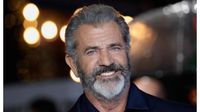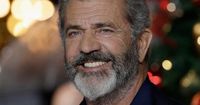In a significant decision, the U.S. Justice Department has restored Mel Gibson's rights to own firearms after a domestic violence conviction in 2011. This approval, granted by Attorney General Pam Bondi, includes nine other individuals whose gun rights were reinstated under new regulations aimed at allowing some people with criminal convictions to regain their firearm ownership rights.
According to The New York Times, Gibson, a prominent supporter of President Donald Trump, was among those whose rights were restored. This development comes nearly a month after Elizabeth G. Oyer, a former pardon attorney at the Justice Department, was fired for expressing concerns about reinstating Gibson's gun rights. Oyer had previously stated that giving guns back to domestic abusers is a serious matter, emphasizing the potential consequences of allowing individuals with a history of domestic violence to possess firearms.
Gibson's legal troubles began in 2011 when he pleaded no contest to a misdemeanor charge of battering his former girlfriend, Oksana Grigorieva. As part of a plea deal to avoid jail time, he was sentenced to 36 months of probation, community service, and counseling. Despite living in Nevada, where state laws prohibit felons from owning guns, Gibson's misdemeanor conviction allows him to regain his rights, as federal law does not bar ownership for misdemeanors.
The decision to restore Gibson's gun rights has sparked controversy within the Justice Department. Oyer, who was reportedly pressured to add Gibson to a list of individuals eligible for gun rights restoration, refused to do so, citing her concerns about the safety implications. She noted that her decision was based solely on the nature of Gibson's conviction, not on political considerations. A senior Justice Department official has since denied that Oyer's firing was related to this issue.
Earlier this year, Gibson was appointed a "special ambassador" to Hollywood by President Trump, along with fellow actors Jon Voight and Sylvester Stallone. This role aims to help revitalize the film industry, which Trump claims has lost business to foreign countries over the past four years. In a post on Truth Social, Trump expressed confidence in Gibson and his fellow ambassadors, stating they would serve as his eyes and ears in Hollywood.
The restoration of Gibson's gun rights aligns with broader efforts by the Trump administration to review and potentially loosen federal gun policies. In 2024, the Supreme Court upheld regulations restricting firearm access for individuals facing restraining orders due to domestic violence. However, the Trump administration has since sought to revise these policies, emphasizing the importance of allowing individuals who have demonstrated rehabilitation to regain their rights.
New regulations published by the Justice Department outline a framework for restoring gun rights to individuals with criminal convictions, provided they have "earned the chance" to own firearms again. The criteria for determining eligibility include the nature of past criminal activity and current law-abiding behavior. This marks a shift in the department's approach, allowing more discretion to restore rights to those who meet certain conditions.
Gun Owners of America, a lobbying group, has praised the interim rule as a significant step forward. Conversely, gun control advocates, such as Kris Brown, president of the Brady Campaign, have criticized the move, labeling it a dangerous power grab by the Trump administration and a gift to donors in the gun industry.
As the Justice Department prepares to publish the details of Gibson's restored rights in the Federal Register, the implications of this decision continue to unfold. While Gibson may now have the green light to own firearms again, the varying state laws regarding gun ownership will ultimately dictate his ability to purchase and possess weapons legally.
In the wake of this decision, the conversation surrounding gun rights restoration for individuals with criminal backgrounds remains contentious. Advocates for stricter gun control argue that allowing those with histories of domestic violence to regain firearm access poses significant risks to public safety. On the other hand, proponents of restoring rights emphasize the importance of rehabilitation and second chances for individuals who have paid their debt to society.
As Mel Gibson steps back into the public eye, this latest development adds another layer to his already complex narrative. From his cinematic achievements to his controversial past, Gibson's journey reflects broader societal debates about justice, redemption, and the responsibilities that come with regaining rights once lost.









